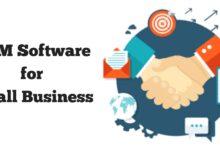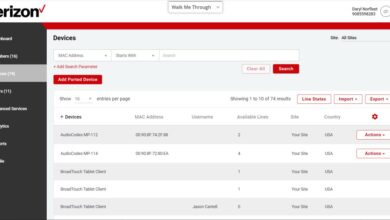B2B Marketplace: 7 Powerful Insights to Transform Your Business
Ever wondered how companies buy and sell in bulk without stepping into a physical store? Welcome to the world of b2b marketplace—a digital powerhouse reshaping global trade. It’s not just about transactions; it’s about transformation.
What Is a B2B Marketplace and Why It Matters

The term b2b marketplace refers to an online platform where businesses buy and sell goods and services to one another. Unlike B2C (business-to-consumer) models, B2B transactions involve larger volumes, longer sales cycles, and more complex decision-making processes. These platforms streamline procurement, reduce operational costs, and open doors to global suppliers and buyers.
Defining the B2B Marketplace Model
At its core, a b2b marketplace functions as a digital intermediary connecting suppliers and business buyers. Think of it as Amazon or Alibaba—but tailored for companies rather than individual shoppers. These platforms can be industry-specific (like healthcare or construction) or generalists handling everything from raw materials to software solutions.
- Transactions are typically high-volume and contract-based.
- Pricing is often negotiated or tiered based on order size.
- Integration with ERP and procurement systems is common.
According to Grand View Research, the global B2B e-commerce market is projected to exceed $20 trillion by 2027, highlighting the massive scale and potential of these digital ecosystems.
How B2B Differs from B2C Marketplaces
While both models operate online, the mechanics behind a b2b marketplace are fundamentally different from B2C. In B2C, decisions are often emotional and immediate. In B2B, purchases are rational, data-driven, and involve multiple stakeholders.
- Buyer behavior: B2B buyers prioritize reliability, scalability, and ROI over impulse.
- Pricing models: B2B uses dynamic pricing, bulk discounts, and long-term contracts.
- Relationships: Long-term partnerships are more valuable than one-off sales.
“B2B commerce isn’t just about selling products—it’s about solving business problems.” — Forrester Research
Top 5 Benefits of Using a B2B Marketplace
Adopting a b2b marketplace strategy offers tangible advantages for both sellers and buyers. From cost savings to market expansion, the benefits are reshaping how companies operate in the digital age.
1. Expanded Market Reach and Global Access
One of the most powerful advantages of a b2b marketplace is the ability to reach buyers beyond geographical boundaries. A manufacturer in Vietnam can now sell components directly to an electronics assembler in Germany without needing a local distributor.
- Platforms like Alibaba and Global Sources connect millions of suppliers with international buyers.
- Sellers gain visibility without investing in global sales teams.
- Buyers access niche suppliers they wouldn’t find locally.
This global connectivity reduces dependency on intermediaries and fosters direct supplier-buyer relationships, increasing transparency and trust.
2. Cost Efficiency and Operational Savings
Running a traditional procurement department involves significant overhead—staff, travel, negotiations, and logistics coordination. A b2b marketplace automates much of this process.
- Digital catalogs eliminate the need for printed brochures and sales reps.
- Automated ordering and invoicing reduce manual errors and processing time.
- Transparent pricing helps buyers compare options instantly.
A study by McKinsey & Company found that companies using digital procurement platforms can reduce purchasing costs by up to 11% and cut processing times by 50%.
3. Faster Procurement and Improved Supply Chain Agility
In fast-moving industries like manufacturing or retail, delays in sourcing materials can halt production. A b2b marketplace accelerates procurement by offering real-time inventory data, instant quotes, and integrated logistics.
- Buyers can source alternatives quickly during supply chain disruptions.
- Automated reordering systems prevent stockouts.
- Supplier performance metrics help in making informed decisions.
For example, during the 2020–2022 supply chain crisis, many companies turned to B2B platforms to find alternative suppliers for PPE, electronics, and packaging materials.
Key Features of a Successful B2B Marketplace
Not all b2b marketplace platforms are created equal. The most successful ones share a set of core features that enhance usability, trust, and scalability.
Advanced Search and Product Discovery Tools
Unlike B2C sites where users browse casually, B2B buyers are on a mission. They need precise, technical information fast. Effective search functionality is non-negotiable.
- Filters by specifications (e.g., material, voltage, certifications).
- Support for part numbers, SKUs, and technical drawings.
- AI-powered recommendations based on past purchases.
Platforms like Thomasnet specialize in industrial sourcing with deep technical filters, making it easier for engineers and procurement managers to find exact matches.
Custom Pricing and Quote Management
Fixed pricing rarely works in B2B. Buyers expect volume-based discounts, contract pricing, or negotiated rates. A robust b2b marketplace must support dynamic pricing models.
- Role-based pricing (e.g., different rates for resellers vs. end-users).
- Automated quote generation with approval workflows.
- Integration with CRM and ERP systems for seamless order processing.
For instance, SAP Ariba allows enterprises to manage complex procurement contracts with built-in compliance and audit trails.
Secure Transactions and Trust Mechanisms
Given the high value of B2B transactions, security and trust are paramount. Buyers need assurance that suppliers are legitimate, and sellers want protection against fraud.
- Verified business profiles with KYC (Know Your Customer) checks.
- Escrow services for large orders.
- Review and rating systems similar to B2C platforms.
Alibaba’s Trade Assurance program, for example, protects buyers by guaranteeing delivery and quality—boosting confidence in cross-border trade.
Types of B2B Marketplaces: Which One Fits Your Business?
Understanding the different types of b2b marketplace models is crucial for choosing the right platform—whether you’re a buyer, seller, or platform builder.
Horizontal vs. Vertical Marketplaces
One key distinction is between horizontal and vertical B2B marketplaces.
- Horizontal marketplaces serve multiple industries. Examples include Amazon Business and Alibaba, which offer everything from office supplies to industrial machinery.
- Vertical marketplaces focus on a specific sector, such as healthcare (e.g., MedWOW), construction (e.g., BuildSupply), or foodservice (e.g., Chefs’ Warehouse).
Vertical platforms often provide deeper industry expertise, compliance support, and specialized logistics, making them ideal for regulated or niche markets.
Private vs. Public B2B Marketplaces
Another classification is based on access and ownership.
- Private marketplaces are invitation-only platforms operated by large enterprises for their suppliers. For example, Walmart’s supplier portal is a private B2B marketplace.
- Public marketplaces are open to any registered business. These include giants like Thomasnet and Kompass.
Private platforms offer tighter control and integration with internal systems, while public ones provide broader reach and competition.
Industry-Specific Examples and Success Stories
Let’s look at real-world examples of how specialized b2b marketplace platforms are driving value.
- MedWOW: A global marketplace for medical equipment, connecting hospitals with suppliers while ensuring regulatory compliance.
- Flexport Market: Focuses on freight and logistics services, allowing shippers to compare and book cargo space in real time.
- Grainger: Offers MRO (Maintenance, Repair, and Operations) supplies with digital tools for inventory management.
These platforms prove that specialization enhances relevance, trust, and efficiency in B2B commerce.
How to Choose the Right B2B Marketplace for Your Business
Selecting the right b2b marketplace isn’t just about traffic or listings—it’s about strategic fit. Here’s how to make a smart choice.
Assessing Your Business Needs and Goals
Start by defining your objectives. Are you looking to:
- Expand into new markets?
- Reduce procurement costs?
- Improve supply chain resilience?
Your goals will determine whether you need a global generalist platform or a niche vertical marketplace.
Evaluating Platform Features and Integration
Not all platforms integrate smoothly with your existing systems. Key questions to ask:
- Does it support API integration with your ERP or procurement software?
- Can it handle custom catalogs and pricing tiers?
- Is there mobile access for field teams?
Platforms like Shopify B2B and BigCommerce offer strong integration capabilities for mid-sized businesses.
Checking Supplier or Buyer Reputation and Activity
A marketplace is only as valuable as its active participants. Look for:
- High seller/buyer engagement metrics.
- Verified business listings.
- Recent transaction history and customer reviews.
Use tools like Crunchbase or Better Business Bureau to verify company credibility before engaging.
Building Your Own B2B Marketplace: A Step-by-Step Guide
For companies aiming to create a b2b marketplace, the journey requires careful planning and execution. Here’s a roadmap.
Define Your Niche and Value Proposition
Success starts with clarity. Ask:
- Which industry or segment will you serve?
- What problem are you solving that existing platforms don’t?
- Will you focus on price, speed, quality, or compliance?
For example, a marketplace for sustainable packaging materials could differentiate itself through eco-certifications and carbon footprint tracking.
Choose the Right Technology Stack
Building a scalable b2b marketplace requires robust technology.
- Frontend: React or Angular for responsive user interfaces.
- Backend: Node.js or Django for handling complex logic.
- Database: PostgreSQL or MongoDB for structured and unstructured data.
- Marketplace platforms: Consider solutions like Sharetribe, Arcadier, or custom builds using Magento B2B.
Ensure the platform supports multi-vendor management, role-based access, and secure payment gateways.
Onboard Suppliers and Drive Buyer Acquisition
Marketplaces suffer from the “chicken-and-egg” problem: buyers won’t come without suppliers, and suppliers won’t join without buyers.
- Start with a curated list of high-quality suppliers.
- Offer incentives like reduced commissions or marketing support.
- Use targeted digital marketing to attract early adopters.
Platforms like Faire and Handshake grew rapidly by focusing on underserved small retailers and offering generous return policies.
Future Trends Shaping the B2B Marketplace Landscape
The b2b marketplace ecosystem is evolving rapidly. Staying ahead means embracing innovation.
AI and Machine Learning for Smarter Procurement
Artificial intelligence is transforming how businesses discover and purchase goods.
- AI-powered chatbots assist buyers with technical queries.
- Predictive analytics forecast demand and suggest reorder points.
- Natural language processing enables voice-based ordering.
For example, Amazon Business uses AI to recommend products based on a company’s purchase history and industry trends.
Blockchain for Transparency and Trust
In industries like pharmaceuticals or aerospace, traceability is critical. Blockchain technology can provide immutable records of transactions, certifications, and shipments.
- Prove product authenticity and origin.
- Automate compliance with smart contracts.
- Reduce fraud and counterfeit goods.
IBM and Maersk’s TradeLens platform uses blockchain to enhance supply chain visibility across B2B networks.
Integration with IoT and Smart Inventory Systems
The Internet of Things (IoT) is enabling autonomous procurement. Smart sensors in warehouses can detect low stock levels and trigger automatic reorders via a b2b marketplace.
- Reduces human error and delays.
- Optimizes inventory carrying costs.
- Enables just-in-time (JIT) manufacturing.
Companies like Siemens and Bosch are already piloting such systems in their smart factories.
What is a B2B marketplace?
A B2B marketplace is an online platform where businesses buy and sell products or services to each other. It streamlines procurement, expands market access, and enhances supply chain efficiency through digital connectivity.
How does a B2B marketplace differ from B2C?
B2B marketplaces involve larger transaction volumes, longer sales cycles, and multiple decision-makers. Pricing is often negotiated, and relationships are long-term, unlike the impulse-driven, individual-focused B2C model.
Are B2B marketplaces safe for large transactions?
Yes, reputable B2B marketplaces use secure payment gateways, KYC verification, and escrow services to protect both buyers and sellers. Platforms like Alibaba Trade Assurance and SAP Ariba offer additional layers of trust and compliance.
Can small businesses benefit from B2B marketplaces?
Absolutely. Small businesses can access global buyers, reduce sales overhead, and compete with larger firms by leveraging the reach and tools provided by B2B marketplaces.
What industries use B2B marketplaces the most?
Manufacturing, healthcare, construction, IT, and logistics are among the top industries using B2B marketplaces. However, adoption is growing rapidly across agriculture, energy, and professional services.
The rise of the b2b marketplace is more than a digital trend—it’s a fundamental shift in how businesses operate. From global sourcing to AI-driven procurement, these platforms are making commerce faster, smarter, and more connected. Whether you’re a buyer, seller, or entrepreneur, understanding and leveraging B2B marketplaces is no longer optional—it’s essential for staying competitive in the modern economy.
Further Reading:






